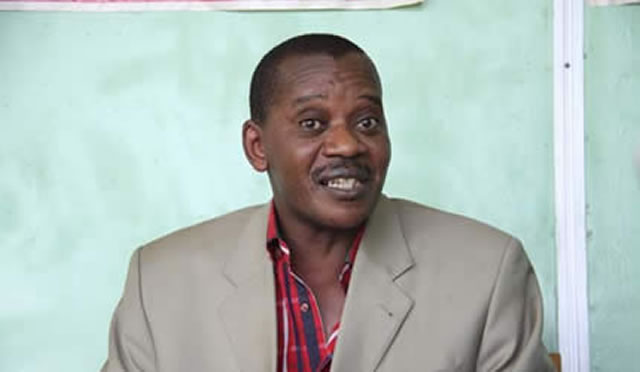Harare cuts off water defaulters

Felex Share Herald Reporter
HARARE City Council has started disconnecting water supplies for residents who have not paid anything towards their water and sewer bills after gaining a clean slate when past debts were written off at the end of June.Residents from all the 92 local authorities, who were struggling to service their debts, were given relief when the Government directed all municipalities and councils to write off arrears accumulated since 2009 when the new currency regime came into force.
This was after Government realised that the debts had become a burden on citizens who were being weighed down by economic hardships spawned by Western-imposed sanctions.
The move saw all domestic ratepayers starting on a clean slate from July after debts accumulated between February 2009 and June this year were written off.
Despite starting on a new slate, some residents, especially those in high-density areas, are failing to pay their bills, prompting council to cut water supplies.
They argue that council should first work on its billing system as it is the one that saw them accumulating huge bills in the past even when attempts were made to settle them.
Council has several charges on its bills: rates, which are constant, sewer fees, which are constant, refuse removal, which are again constant, and water bills, made up of a minimum charge and a metered or estimated reading.
In areas where water supplies are intermittent, council tends to levy just the minimum charge. Council spokesperson Mr Leslie Gwindi yesterday confirmed that the city had started disconnecting defaulters.
“We have been clear on the matter that after the cancellation of the old bills, everyone is on zero and should pay up. The bills are manageable and people should keep up with their payments to enable us to execute our mandate without problems. We even placed adverts warning them against defaulting because at the end of the day they need potable water and for us to provide that they should pay up.”
Harare cancelled household debts of US$330 million following the Government directive.
“Our revenue has been up and down and there is no way we can discharge our duties effectively with the (new) debts in sight.
“We need money to buy chemicals among other things and moreover if people continue like this, it means they will, in a short period of time, accumulate huge bills again yet Government had saved them.”
At least US$100 000 is required to buy chemicals daily, meaning the city requires US$3 million for water purification chemicals every month.
Areas affected by the disconnections include Glen Norah, Highfield, Glen View, Budiriro and parts of Dzivaresekwa.
Residents slammed the water disconnections, saying they were coming at a time when council was failing to provide constant supplies.
“As much as we welcome the directive by Government that we start afresh, it hurts to pay for something that you do not have consistently,” said Mr Tinashe Tiki of Glen Norah.
“What we have are the bills, but we spend days without the water and we wonder what they want us to pay for. Even if people settle those bills, they are still going to be disappointed because there will be no water,” he said.
Residents in eastern and much of northern Harare, who note that residents of the western and central suburbs have far better water supplies, are only now receiving water for short periods each week. Some had no water for months, but still paid the minimum charge.
Mrs Ruth Nyamaropa of Highfield said council must adjust its billing system.
“What has changed in our day-to-day living that warrants those disconnections? Our income has not changed and in turn they should not continue with their old billing system,” he said.
“We have to receive normal bills for them to get the revenue they need. Reasonable bills motivate residents and we are waiting for that to happen.”
Harare Residents Trust co-ordinator Mr Precious Shumba said while residents should honour their financial obligations, the billing system was a cause for concern.
“The current billing system is open to manipulation by City Treasury officials and other senior managers who have unhindered access to the system’s servers,” he said.
“It is the billing system in place that has resulted in most residents failing to settle their bills in the past, where bills continue to rise, even when attempts are made to clear them. The HRT is expecting the new council to be more transparent in its handling of public affairs, and to be more accountable when it comes to dealing with public finances.”
Council last week fired seven employees and while one was arrested for manipulating the city’s billing system to swindle unsuspecting ratepayers of thousands of dollars.











Comments